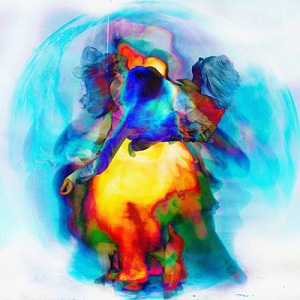“Clip-pop” is nothing new; people have been using snippets of noise and melody looped over and over again for decades now. Heck, you can trace it way back to the beginnings of the Musique concrète movement in the early 1940s and Pierre Schaeffer’s looping reels of birdsong and train noises, and even place it as the technical origin of most electronic genres, if not a whole host of other ones. It not only transformed what music could actually be, but also how music could be made in an advancing digital age. Much like their genre, Clock Opera’s music is nothing new, but has charming roots.
If the London four-piece’s “Making of” videos on their website are anything to go by, then the tracks on their debut album Ways To Forget are constructed from loops of a whole host of noises, from checkout bleeps, to train announcements, to the hum and din of everyday life. But it’s a shame that these videos have to be watched to make this clear, as too often these noises go unnoticed, lacking any sort of identity, and simultaneously being shadowed by the rest of the band’s live instruments. It’s only on “White Noise” do you get the impression that you might be hearing something interesting – something that’s not a traditional instrument – as flashes of buzzing noise come and go over a sustained hum. Elsewhere the band weave melodies over quickly skipping guitars and piano lines, building them to crescendos and climaxes.
And they get some great moments out of this formula. Opening track “Once And For All” is an appealing call to arms, starting off with a couple of jittery loops before bringing the grandiose into the picture, with falsetto vocals and stomping bass and drums. “Man Made” gets by with separate synth and guitar riffs that sound like their trying to drive each other the road, in a style that isn’t too far off a version of recent Chromatics songs, while “Fail Better” – which is rather encouraging, despite its name – makes a welcome and surprising shift in the final ninety seconds with a semi-trance styled outro. “Lesson No.7” and “11th Hour” aim high but the build and release for each track isn’t as effective as the band might have hoped for: “Lesson No.7” gets weighed down by its stodgy guitar riff while the latter of the two tracks stutters to its conclusion. It’s a bit misplaced, really; “11th Hour” is a track built for a huge release, especially with its chorus: “You’ve got to get mad as hell/ Got to go ring that bell/ Got to go tell the others.” Had the energy in “Lesson No.7” been transferred to this track, there might have been a more thrilling outcome.
All this soaring isn’t good in terms of variety, either. The majority of the album is spent either on its way to something bigger, or with the band letting rip in a manner that’s not always as electrifying as one could hope. “Belongings” is the only slower number here, and is the most affecting song too, with a selection of memorable lyrics sung over trickling piano lines. But it’s still in the same format as every other song, with looping pieces of melody forming the skeleton as the band build a climax around it. What the album really aches for is something that feels entirely honest and organic, and something that might lower the pace for even just the entirety of a song’s runtime. “The Lost Buoys” hints at this to begin with, but before long a drumbeat comes in and immediately disperses a moment of thoughtfulness (thankfully the song’s bridge and chorus save it from being too Coldplay-esque). At the very least, though, with Ways To Forget the band prove that they can make good songs within their genre, and sound comfortable in it. This gives hope of there being life in the band beyond remixing others’ songs (which, it should be said, they are really quite good at, as evidenced by their version of Architecture in Helsinki’s “Contact High”), hope that from here they’ll evolve and grow, and not get stuck in a loop.

